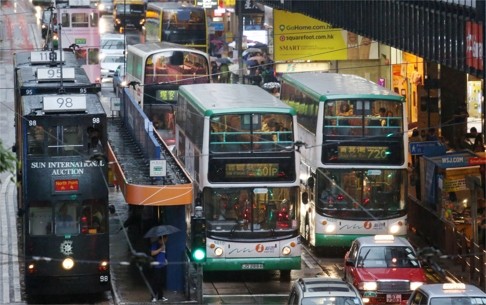No good reason to veto plan for a car-free Central in Hong Kong
Bernard Chan says the proposal to pedestrianise a now-congested part of the city should be backed even by those who would be inconvenienced by it, because the plan is for the greater good

READ MORE: Businesses back plan to make one-kilometre stretch of Hong Kong’s Des Voeux Road Central vehicle free
This is not a new idea. Professional societies presented a similar plan back in 2000. But, perhaps for the first time, it is being backed by a wide variety of supporters and stakeholders, with Clean Air Network as the lead organiser. As well as groups with planning and environmental expertise, local commercial interests like landlords are on board. There are some doubters, but this is essentially a broad coalition, not a “greens versus business” fight.
The attitude seems to be: if other people are allowed to veto change because it doesn’t suit them, why should the rest of us make a sacrifice for the greater good?
Under the proposal, Des Voeux Road, from Western Market to Peddar Street, would be largely pedestrianised, though trams would still run along the road. The area would become what urban planners call a “linear park”. It could have seating, greenery and other features, not least far more space for people to walk in.
My business is on Des Voeux Road, and I have been briefed on the proposal.
In principle, the initiative makes perfect sense. Often, there are too many pedestrians for the pavements to handle. Vehicles are backed up on the surrounding streets. Ongoing redevelopment of office and retail properties will create even more congestion – the additional road space is simply not there. Something clearly has to give.
From a practical point of view, any change of this sort will cause some disruption. This initiative would involve re-routing buses and making different arrangements for delivery vehicles.
Supporters of the idea believe these issues are manageable. They point out that the opening of new transport links, like MTR extensions and bus route consolidation, offer new opportunities to restructure traffic flows in Central. Crucially, north-south roads crossing Des Voeux Road would remain open to traffic, so the corridor would not be a barrier to the overall flow of vehicles.

